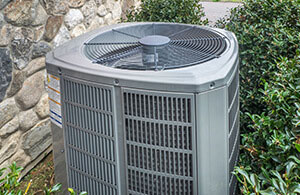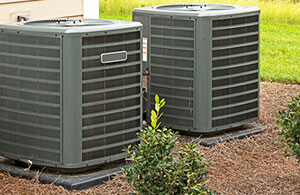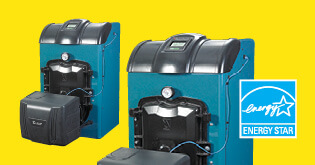- My Account:
- Sign In
- Register
- Make Payment

What size central air conditioner do I need? A guide to finding the perfect size for your home.

When you choose an air conditioner, it's important to get the size just right. If it's too small, it won't be able to cool your home properly during the summer, and the non-stop running will send your electric bills soaring. If it's too big, it doesn't mean you'll be more comfortable. Oversized air conditioners can cool the area too quickly, which will cause it to run for a very short cycle. Therefore, the unit does not have enough time to remove humidity from the air, which can lead to mold and mildew problems. In addition, excessive on-off cycling caused by an air conditioner being overpowered can wear out your system faster and cause uncomfortable hot and cold swings. The only way to ensure comfortable, cost-effective cooling is to make sure your air conditioner is properly sized.
How are central air conditioners measured?
In air conditioning terms, size refers to cooling power, not physical size. Of course, more powerful units will tend to be larger, but it's almost impossible to tell how much cooling power an AC unit provides simply by looking at it. Instead, you need to look at the tonnage or BTUs (British Thermal Units). BTUs are a measure of heat while tonnage is a measure of how much heat an air conditioner can remove in one hour (tonnage isn't the weight of the AC unit).
1 ton = 12,000 BTUs / hour
A two-ton air conditioner removes 24,000 BTUs per hour. When an air conditioner is listed by BTUs rather than by tonnage, it's usually referring to BTUs per hour, so the two measures are directly comparable if you multiply or divide by 12. A window air conditioner might be around 5,000 to 10,000 BTUs, while residential central air conditioners average between 20,000 to 50,000 BTUs.
Now, let’s look at square footage and how many BTUs are usually needed to cool certain rooms.
| Typical BTUs Needed | ||
| Area (sq. ft.) | Room Type | Recommended BTUs |
| 100-300 | Bedroom or home office | 5,000-6,000 |
| 100-300 | Master bedroom or playroom | 7,000-8,500 |
| 350-650 | Living room, family room, or open plan | 9,800-12,500 |
Source: https://www.consumerreports.org/window-air-conditioners/how-to-size-a-window-air-conditioner/
What's the right size AC for my home?

Square footage provides a ballpark starting point for the size of your air conditioner, but many other factors come into play. One of the most important is where you live and your climate, as hot areas will have higher cooling demands, and your typical humidity also impacts the size and type of air conditioners that you should use.
It's also important to evaluate your own home. For example, how much shade does it get, what type of roofing do you have, and how well is your home insulated? A single-family home might have higher cooling needs than a townhouse of the same size with one or more walls connected to neighbors. Similarly, a lower floor condo will need less cooling than a top floor condo. HVAC professionals make a final determination of what size AC you need by using Manual J along with their own experience servicing air conditioners in your area.
Ask a professional.
If you're looking to install an air conditioner in your home, it's important to ask a professional to determine the size rather than trying to figure it out on your own. AC sizing is both an art and a science. Even if manufacturer guidelines provide a recommended size for your climate, they don’t consider your home's unique characteristics. Choosing the wrong size could cost you far more in added energy costs. Why waste time in having to go back and purchase a properly sized unit? Get expert guidance and contact Petro Home Services to have a trained professional come to your home and provide detailed AC installation services.
Petro Home Services is proud to not only serve communities in DC, CT, MA, MD, NJ, NY, PA, and RI but we also proudly acknowledge the skills and experience of our expert team behind all resources. With insights on topics ranging from heating oil facts to common air conditioning questions, you can rely on Petro Home Services for facts and information to help you understand more about your heating, cooling and home comfort needs. This article and all articles on the Petro Home Services website have been approved by our team of home service experts.






